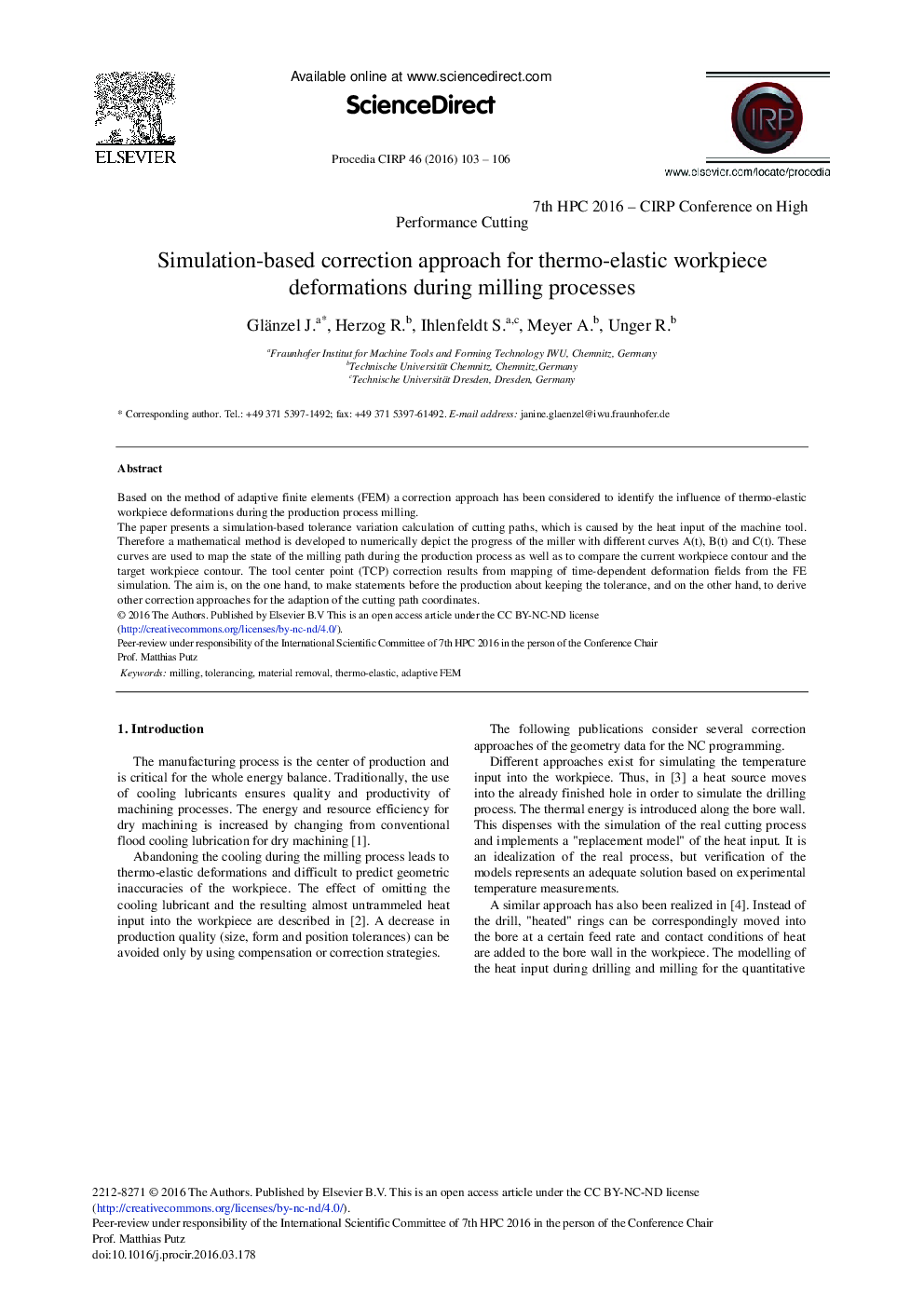| Article ID | Journal | Published Year | Pages | File Type |
|---|---|---|---|---|
| 1698382 | Procedia CIRP | 2016 | 4 Pages |
Based on the method of adaptive finite elements (FEM) a correction approach has been considered to identify the influence of thermo-elastic workpiece deformations during the production process milling.The paper presents a simulation-based tolerance variation calculation of cutting paths, which is caused by the heat input of the machine tool. Therefore a mathematical method is developed to numerically depict the progress of the miller with different curves A(t), B(t) and C(t). These curves are used to map the state of the milling path during the production process as well as to compare the current workpiece contour and the target workpiece contour. The tool center point (TCP) correction results from mapping of time-dependent deformation fields from the FE simulation. The aim is, on the one hand, to make statements before the production about keeping the tolerance, and on the other hand, to derive other correction approaches for the adaption of the cutting path coordinates.
